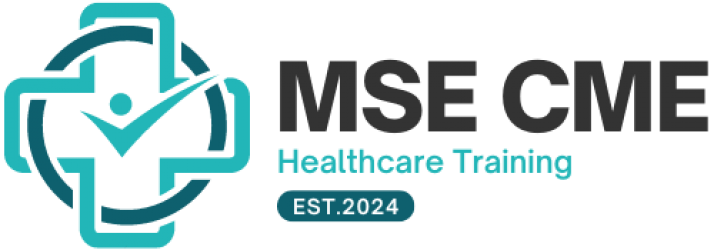
Healthcare Training: Accelerate Your Career with Proven Methods
Healthcare is a rapidly growing field that offers a wide range of career opportunities. Whether you’re interested in becoming a nurse, medical assistant, or pharmacy technician, proper training is essential for success. In this article, we’ll explore the importance of healthcare training and how you can accelerate your career with proven methods.
The Importance of Healthcare Training
Healthcare training provides individuals with the necessary skills and knowledge to excel in their chosen profession. From understanding medical terminology to mastering patient care techniques, comprehensive training is vital for delivering high-quality healthcare services.
Types of Training Programs
Certified Nursing Assistant (CNA) Training
CNA training programs prepare individuals to provide basic care to patients in healthcare settings such as nursing homes and hospitals. Students learn essential skills like taking vital signs, assisting with daily activities, and maintaining patient hygiene.
Medical Assistant Training
Medical assistant training covers a wide range of topics, including administrative tasks, clinical procedures, and patient interaction. Graduates of these programs can work in various health protection settings, including physicians’ offices, clinics, and hospitals.
Nursing Training
Nursing programs prepare students for careers as registered nurses (RNs) or licensed practical nurses (LPNs). These programs typically include classroom instruction, laboratory work, and clinical rotations to provide students with hands-on experience in patient care.
Pharmacy Technician Training
Pharmacy technician training teaches students how to assist pharmacists in dispensing medications, managing inventory, and providing customer service. With the increasing demand for prescription medications, pharmacy technicians play a crucial role in healthcare delivery.
Benefits
Job Opportunities
Healthcare training opens doors to a wide range of job opportunities in various settings, including hospitals, clinics, long-term care facilities, and pharmacies. With the aging population and advances in medical technology, the demand for trained healthcare professionals continues to grow.
Career Advancement
Advanced health protection training and certifications can lead to higher-paying positions and greater opportunities for career advancement. Whether you’re interested in specializing in a particular area of health protection or pursuing leadership roles, continuous learning is key to success.
Personal Fulfillment
Working in healthcare can be incredibly rewarding, knowing that you’re making a positive difference in the lives of others. Health protection professionals often form deep connections with patients and their families, providing support and comfort during challenging times.
Challenges in Healthcare Training

While healthcare training offers numerous benefits, it also comes with its challenges.
Time Commitment
Many training programs require a significant time commitment, including classroom instruction, clinical rotations, and studying outside of class. Balancing coursework with other responsibilities can be challenging for some students.
Financial Investment
Training programs can be costly, including tuition, books, and fees. For individuals with limited financial resources, finding ways to finance their education can be a major hurdle.
Emotional Stress
Working in healthcare can be emotionally demanding, especially when dealing with patients who are sick or in pain. Healthcare professionals must learn to cope with stress and maintain their emotional well-being to provide the best possible care.
Effective Methods for Accelerating Your Healthcare Career
Online Healthcare Courses
Online healthcare courses offer flexibility for individuals balancing work, school, and family responsibilities. These courses cover a wide range of topics and allow students to learn at their own pace from the comfort of their home.
Hands-on Clinical Experience
Hands-on clinical experience is essential for mastering practical skills and gaining confidence in healthcare settings. Many training programs include clinical rotations where students work under the supervision of experienced professionals.
Networking and Mentorship
Networking with healthcare professionals and seeking mentorship can provide valuable insights and guidance as you progress in your career. Building relationships with mentors and peers can open doors to new opportunities and help you stay informed about industry trends.
Choosing the Right Training Program
When selecting a training program, several factors should be considered.
Accreditation
Choose a program that is accredited by a recognized accrediting body to ensure that it meets high standards of quality and rigor.
Curriculum
Review the curriculum to ensure that it covers the necessary topics and provides hands-on experience in relevant clinical settings.
Cost
Consider the cost of the program, including tuition, fees, and additional expenses, and explore financial aid options available to you.
Career Support
Look for programs that offer career services, such as job placement assistance, resume writing workshops, and interview preparation, to help you succeed in your job search after graduation.
Success Stories: Real-Life Examples
Highlighting success stories of individuals who have completed training programs and achieved their career goals can inspire and motivate others to pursue their dreams.
Tips for Excelling in Healthcare Training

Stay Updated
Stay informed about the latest developments and trends in health protection by attending conferences, workshops, and continuing education courses.
Practice Empathy
Developing empathy and compassion for patients can enhance the quality of care you provide and strengthen your relationships with patients and their families.
Develop Communication Skills
Effective communication is essential in healthcare for building trust, conveying information, and resolving conflicts. Practice active listening and strive to communicate clearly and compassionately with patients and colleagues.
Seek Feedback
Seek feedback from instructors, preceptors, and peers to identify areas for improvement and refine your skills as a healthcare professional.
Overcoming Common Obstacles
By recognizing common obstacles and developing strategies to overcome them, you can navigate challenges more effectively and achieve success in your health protection career.
Future Trends in Healthcare Training
As technology continues to advance and healthcare evolves, the field of training will also undergo changes. Staying informed about emerging trends and adapting to new developments will be crucial for staying competitive in the healthcare industry.
Conclusion
Healthcare training is an essential step in launching and advancing a successful career in health protection. By acquiring the necessary skills and knowledge through accredited training programs, individuals can pursue rewarding opportunities in various healthcare settings. Despite the challenges and obstacles that may arise along the way, dedication, perseverance, and a commitment to lifelong learning can help healthcare professionals excel in their careers and make a positive impact on the lives of others.
